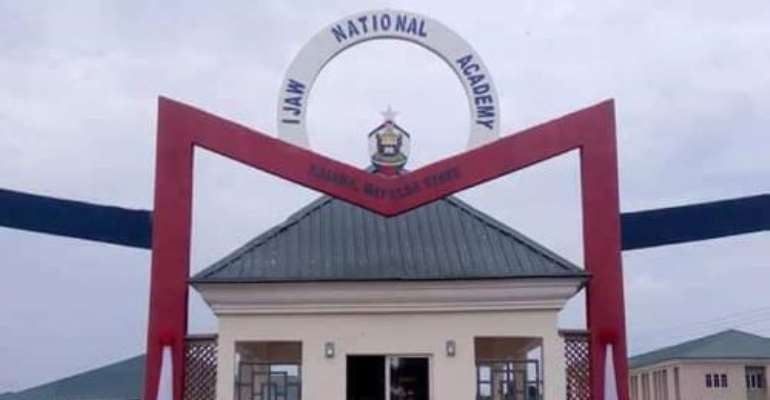Ijaw National Academy: A Fountain of Scholarship

Education is the spark-plug that illuminates good governance, catalyzes economic development, social progress and technological advancement. It is against this background that Article 26 of the Universal Declaration of Human Rights (1948) provides that basic education shall be universal, free and compulsory. The thinking is that education is a public good.
Since that historic declaration, democratic countries around the world have adopted it as an article of faith in pursuit of their developmental aspirations. In fact human capital theorists posit that no asset is greater that the educated man who has acquired skills to manipulate economic processes for development.
There is a Chinese proverb that “A day of reading is a day of gain; a day without reading is ten days of loss”. Universal, free and compulsory education is in tandem with the UDHR. Governor Dickson had pledged that the long term goal of basic education is to leave no child behind.
It was for this reason Governor Seriake Dickson declared a state of emergency in education. This initiative has started to yield dividends. One of such dividends is the establishment of the Ijaw National Academy, INA. The INA is a a top notch model academy designed to train the best brains selected among the youths. The Ijaw National Academy has capacity for Two thousand students and admission criteria are strictly based on discipline and merit.
The Academy is situated on a beautiful landscape in Kaiama, with a total of 26 modern buildings comprising bungalows as staff quarters, two storey buildings for boarding housing and well-equipped classroom. Others are s a massive ICT laboratory and health centre with doctors and nurses to promote the development of a good academic culture akin to a well-equipped University. It is the largest model boarding secondary school in the country.
Specifically, the Ijaw National Academy was established to prepare Ijaw Youths to fit into the intensely competitive society and to use the institution as a platform for uniting the Ijaw People. It is essentially a “special School” for special children who are cut out to be the leading lights in scholarship and leadership.
In INA, students do not only enjoy quality teaching; they also enjoy the ambience associated with conducive environment, standard library, internet facilities, well-equipped laboratories and other special corners befitting of a modern educational infrastructure.
Benjamin Franklin once asserted that ‘if a man empties his purse into his head, no man can take it away from him, hence an investment in knowledge always pays the best interest”. Governor Dickson has invested massively in education because of his passion and its catalytic role in turning around the fortunes of society.
Bayelsa is not perfect - far from it, but we are witnessing the honeymoon days of education and it leaves no one in doubt that if the present tempo is sustained, it is obvious that the much talked about educational rebirth has begun.
The success story of INA does not depend only on the completion and success rate of students in national exams but the component of leadership training. Students are trained to imbibe Ijaw cultural values, appreciate civic duties and ethics to change their world view. All-inclusivity is a criterion that is fulfilled because INA is a coeducational School.
Governor Dickson has made a pronouncement of replicating the school across the State, especially at the Senatorial District level. This will massif the model and pose sustainability challenges. This is where successive administrations are expected to share the vision devoid of any political connotation.
Another implication is the maintenance of quality and standard. The Ijaw National Academy is unique like the Nigerian -Turkish College, Jesuit Loyola College and Vivian Fowler International schools. The recommendation is to keep INA as a distinct institution, which on the long run will be expanded to accommodate more students. This will be necessary when there is enrolment boom in the school.
Wealthy individuals and the organized private sector can also underwrite part of the cost element of the Academy. Components such as quiz competitions, leadership colloquium, skill-based workshops, and other technology-oriented programmes can be underwritten to reduce the cost burden of the school on government.
There is the consideration of cost overrun which may be triggered by inflation, under-budgeting and dearth of funds.
Also worthy of emphasis in the realm of sustainability is the students’ selection process, the teacher-student ratio, gender balance, and stability in the funding regime. To ensure a steady funding regime, government can enter into some irrevocable agreements with some private sector stakeholders who will be committed to funding the Academy.
While school supervision is important, the quality of teachers is also essential. The Academy will not make a fetish of certificates but embark on tremendous in-roads into techno-vocational education. Whereas curriculum content will not be the core differentiator, standards will not be compromised.
From the leadership perspective, the institution has played host to top flight leaders and academics such as the Nobel Laureate Prof. Wole Soyinka, Emeritus Professor John Pepper Clark, General Yakubu Gowon Rtd; and several others who have delivered inspirational talks on educational development and leadership.
These motivational discussions help to sharpen the educational horizon of students of the academy. It is up to other successive administrations to continue with this established tradition. What is critical is that the Governor Dickson Administration has established a fountain of scholarship and leadership in Bayelsa State.
